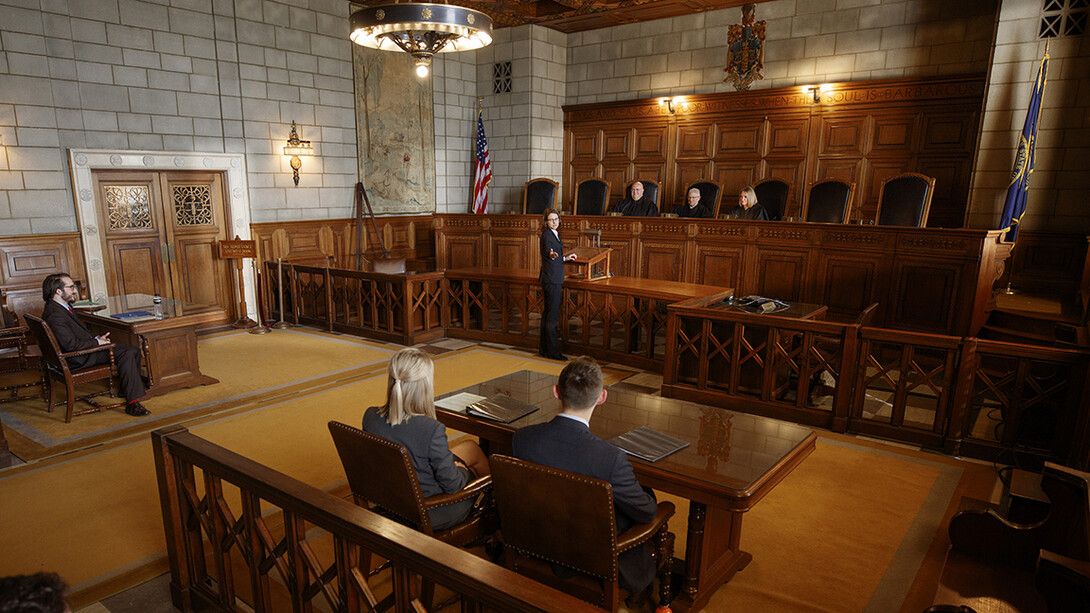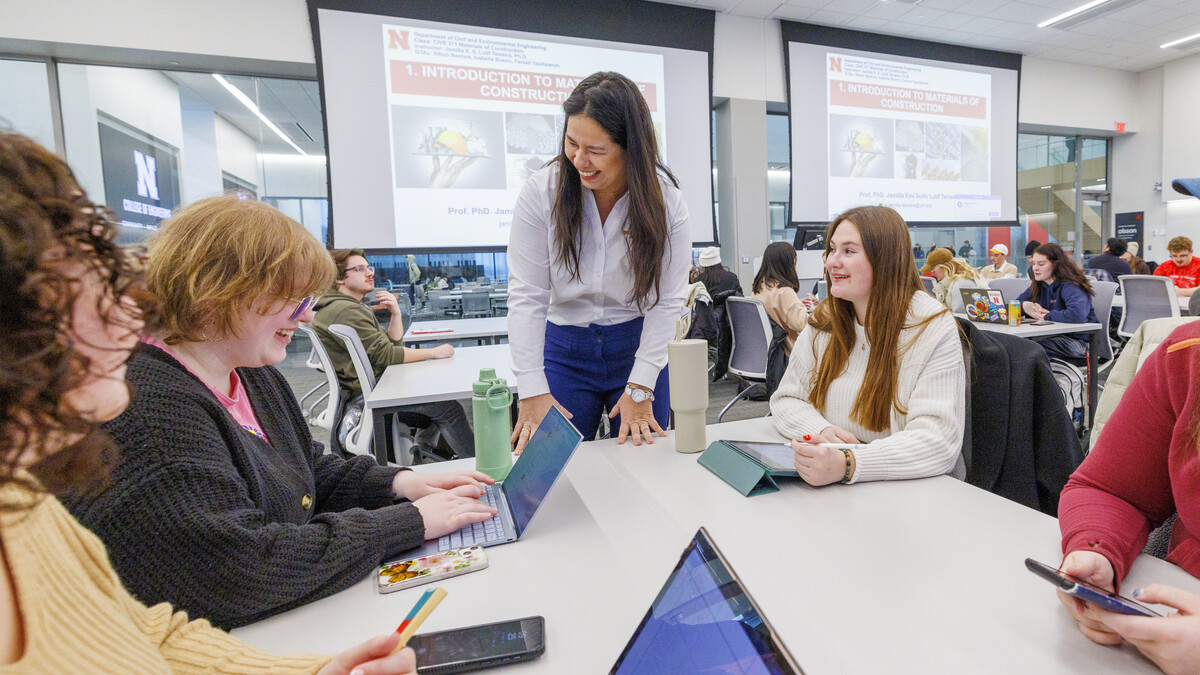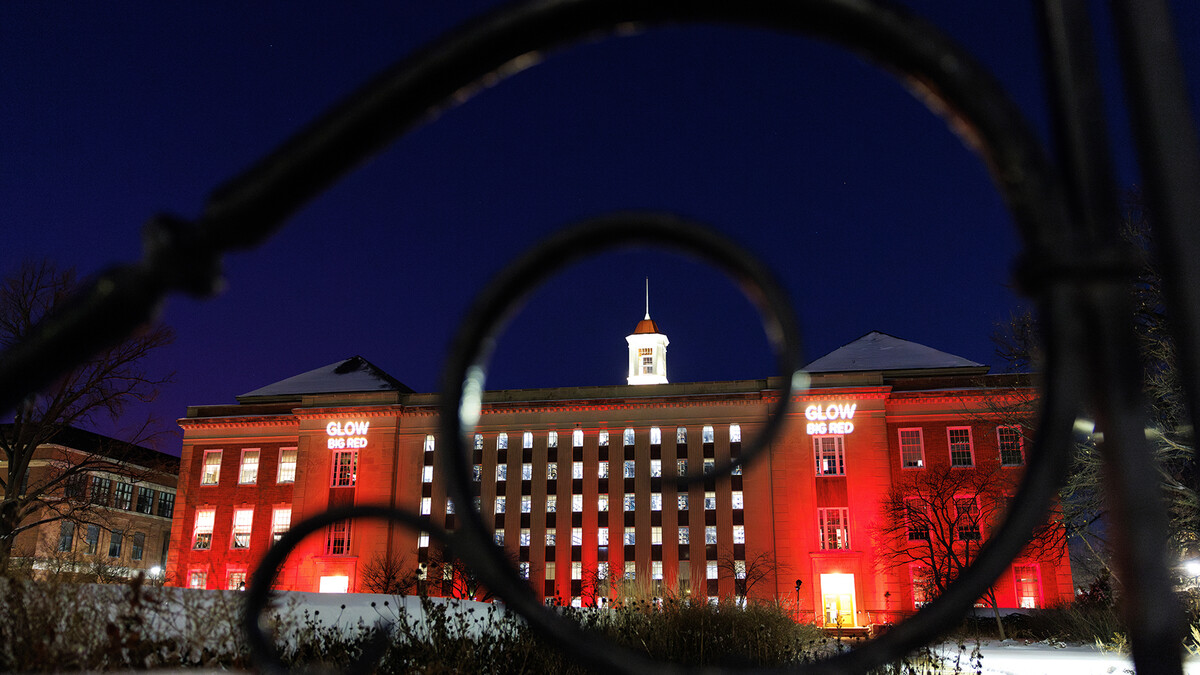
Programs that create regular, one-on-one interactions between students, faculty and career advisers have helped the University of Nebraska College of Law become one of the nation’s best in terms of employment after graduation.
As tabulated in the 2019 American Lawyer 100 rankings, Nebraska Law finished No. 6 out of 201 law schools nationwide. The results are based on the 2018 graduating class, which tallied a 94 percent employment rate within 10 months of earning a degree.
“We are pleased by the ranking, but not surprised because we have terrific, well-prepared Nebraska Law graduates,” said Richard Moberly, dean of the College of Law and interim executive vice chancellor. “Employers within Nebraska and around the country recognize that hiring a Nebraska Law graduate means they are getting a smart, hard-working and thoughtful lawyer.”
Key Nebraska Law programs that have led to continued improvement in employment after graduation include: required check-ins with the college’s Career Development Office for third-year law students; and the launch of Early Interview Week.
In 2016, Nebraska Law implemented the required check-ins, which happen early in the fall semester of third-year students’ final year. The check-ins primarily focus on two paths: assisting pending graduates with job searches and, for students who have already secured employment, making sure the future lawyers feel prepared for the workplace.
“The mandatory check-ins have really changed the way we interact with students,” said Tasha Everman, assistant dean and director of career development for Nebraska Law. “They allow us to reach out directly to students when they begin that third year.
“The conversations about where they want to be and what they want to do help students focus career goals, putting them on a path to make the most of their last year in law school.”
Gregg Moran, a 2018 Nebraska Law graduate, said the Career Development Office was key in helping him get hired as an associate attorney at Constangy, Brooks, Smith and Prophete in Tampa, Florida. He was an early adopter of the career office’s services, starting regular visits in his first year on campus.
“I constantly went to the CDO seeking advice about how I could become a practicing attorney at a large firm in Florida,” Moran said. “Dean Everman and the other CDO staff members were beyond helpful in providing advice. Their feedback on my forms and resume was invaluable.”
For MacKenzie Hertz, also a 2018 law graduate, career assistance led her to become a judicial clerk in the United States Court for the District of Nebraska.
“CDO advisers were among the first to encourage me to apply for judicial clerkships,” Hertz said. “They provided me needed assistance in maneuvering the judicial clerkship application process, including supplying guide materials and in-person meetings.”
Further career assistance is provided through Early Interview Week. The program, which launched in fall 2017, draws employers to campus to talk face-to-face with interested law students.
“We also work with students in a number of other ways, from outlining ways to broach post-graduate employment within current workplaces to identifying spring externships or pro-bono opportunities to develop additional skills,” Everman said. “Combined, our efforts have definitely moved the needle when it comes to Nebraska Law students having employment at graduation.”
Data for the American Lawyer rankings was provided by the American Bar Association and organized by the online publisher Law.com.
Nebraska Law has been named an A+ best value law school in preLaw Magazine for bar passage rates and employment relative to the cost. The college has been counted in the top 10 since the inception of the preLaw Magazine ranking.
Nebraska Law enrolls around 140 students in its first-year law class. Learn more about Nebraska Law and its programs.







